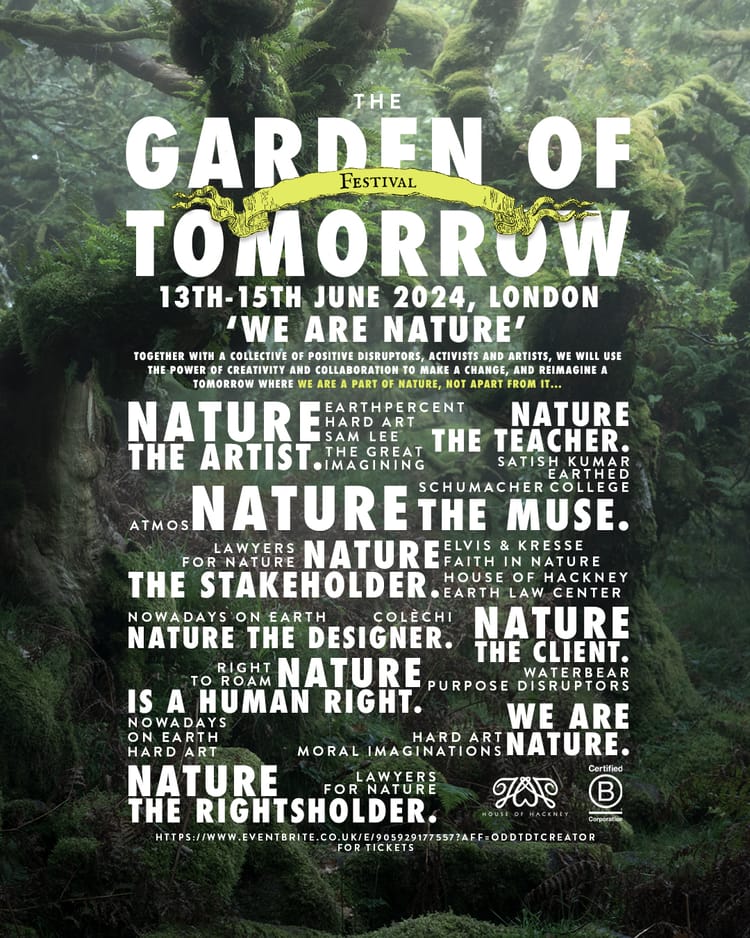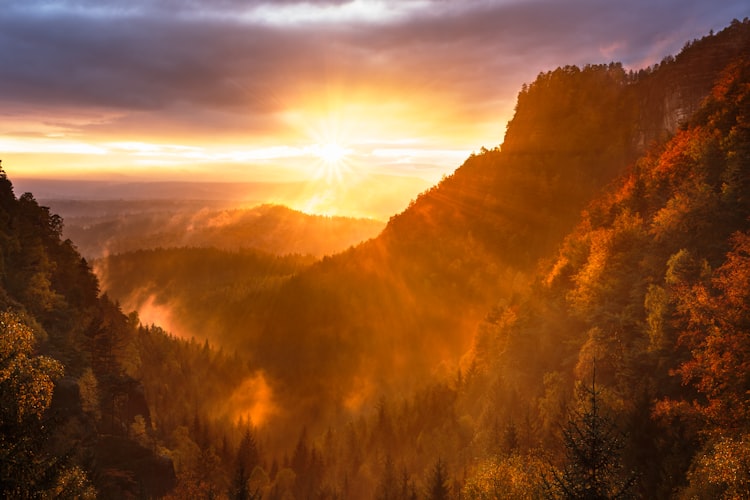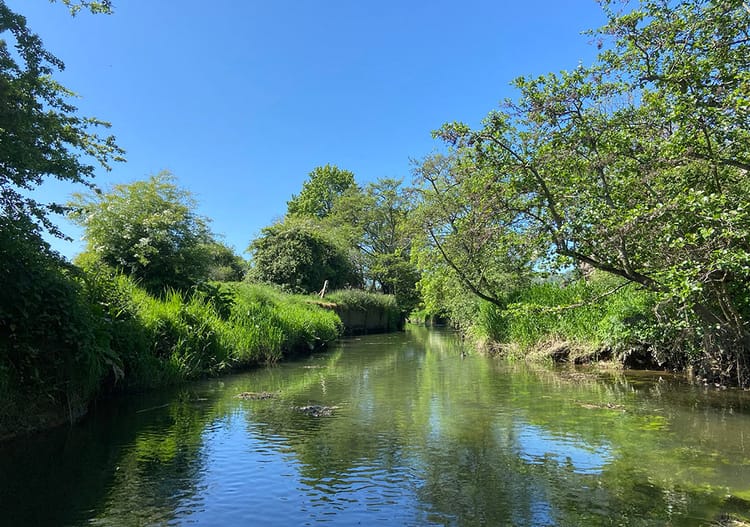Our Earth Week
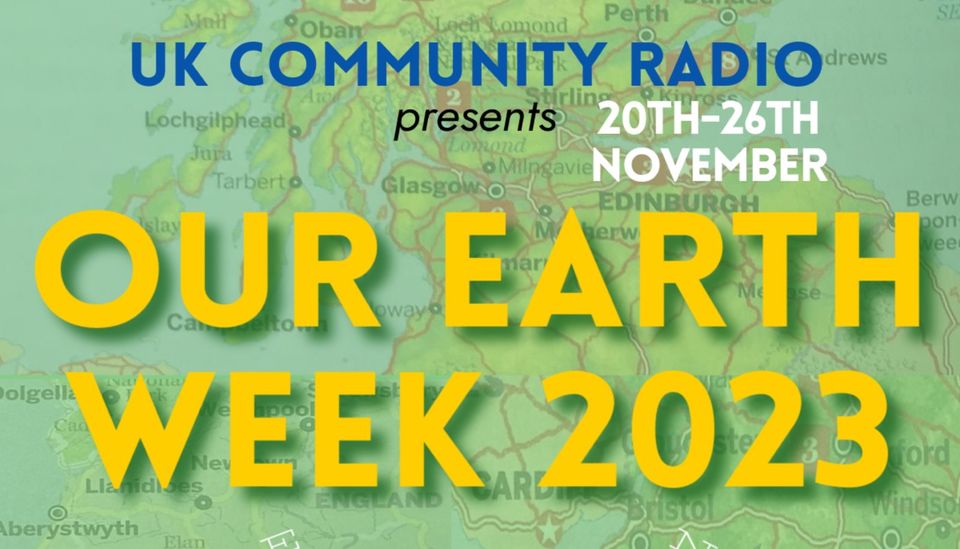
At 8.15am on Monday 20th November, the music and chatter of community radio stations across the UK will quieten, and give way to the sweet sound of birdsong. Thirty seconds for contemplation, which will mark the start of Our Earth Week, where stations will shine a spotlight on the climate crisis, and also celebrate life on our planet. This moment will mark the end of a very busy year for me, and I’m hoping, the emergence of a new voice, the collective voice of our communities, in climate communication.
The journey to this moment began five years ago, back in 2018 when I read about the IPCC Report giving us just 12 years to try and avoid runaway climate change. It sounded like a bulletin announcing the start of a war. I read it in the evening and assumed that when I got to work the following day it would be all anyone was talking about; that Theresa May, then Prime Minister, would be appearing on the steps of 10 Downing Street to announce an emergency cabinet to discuss what to do now.
But, when I got to work, everything looked completely normal. Everyone was going about their normal lives, nothing to see here, business as usual. I couldn’t believe it. I felt as if I was in another world. Theresa May never appeared on the steps of 10 Downing Street, and it was clear that most people couldn’t hear this blaring siren.
A few days later I read an article by George Monbiot in the Guardian, sounding as urgent as I felt. It was such a breath of fresh air. When I got to the end of the article and saw his announcement that he was going to be declaring rebellion against the government on the 31st of October, I felt a surge of hope and decided to step up myself.
The Declaration was like nothing I’d ever done before. I’d been on protest marches, but nothing like this, nothing like openly saying I was going to rebel, then lying down in the road to block the traffic and bring it to a standstill.
This was my introduction to Extinction Rebellion, and to a world that felt initially to me like the one I’d read about in novels – serious and uncompromising young people cramming themselves into cafes and houses, then eventually halls and community spaces as the movement got bigger and bigger. Covert missions and secret comms and disappearing messages. It was an extraordinary time and one I found exhilarating.
I quickly found that one of my main contributions was via the media; sharing information, arguing, promoting, and commenting. Mainly, trying to get the media to tell the truth. I was forever writing to the BBC and complaining about its climate coverage (or rather, complete lack of it) and this became a big preoccupation of mine for the next few years.
Eventually, even though the anger about the media being so singularly useless had not died down, I was gradually pulling away from XR. I needed to keep pushing for action though, and it suddenly occurred to me that I had the perfect opportunity to try and tell the truth myself, in my other life as a radio presenter.
And then along came One Love One Planet, a weekly environmental magazine show. It began life originally as a 15 minute segment on the breakfast show (we’ll do it once a month, I was told - I thought better something than nothing so went with it). After the first morning, the station manager said, “We need to be doing this every week.” Then, not much longer after that, One Love One Planet was given its own show. It was such a joy to be finally doing what I’d been nagging the BBC to do. To try and tell the truth, to be intersectional, and I slowly discovered that everything, just everything, could be seen through the climate lens. So, wherever you looked, there was something to talk about. It felt like an enormous organic being bursting at the seams, wanting to break out – so many people to talk to, so many subjects to tackle, so many different ways to talk about them.
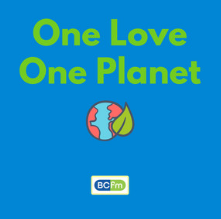
And one of the biggest themes that kept coming back again and again in our conversations was our being part of nature, underpinning everything.
The show won a national award (one of the comments about it was “When I heard it I thought I was listening to the BBC, then as I listened to more I thought, hang on, this isn’t the BBC”), and after a year, I felt confident enough to suggest to the station that we run a special climate week in the run up to the COP26 talks in Glasgow. There was a definite buzz around the COP talks this year because they were actually taking place at home. I got given the go-ahead, and started to try and get as much involvement as possible from the other presenters.
This wasn’t totally straightforward. It took a lot of work, talking to every presenter individually, and trying to tailor my approach to them. Some presenters felt unhappy about having to do it, they felt that they were in no way qualified, that they didn’t know anything about it. Some weren’t interested because their cause lay elsewhere. Many were very helpful and encouraging though, and in the end the week was, all things considered, a success. We had loads of conversations, lots of different guests on, lots of music played on the theme and even a vegan sausage tasting, which was funny and light relief. It was a fantastic week, and reminded me once more of the sheer richness of community radio, and all those myriad of wonderful individuals involved in it.
Cut to a couple of months later and I gave up presenting One Love One Planet (it’s still going with the brilliant Shona Jemphrey) and decided to up the ante on Our Earth Week, to take it nationwide.
So, for the last year I have been contacting every single community radio station individually (there are hundreds) and gradually signing them up. Now we have a core group of stations who are very much involved, and a wider circle of stations that are going to celebrate the week with us. I have tried to make life as easy as possible for people and am providing them with a library of audio files to play on lots of different subjects (including Lawyers for Nature on giving Nature legal status!) and also a handbook of information to draw on if they’ve had no time, or inclination, to prepare anything themselves. I have tried to provide a range of material that will stimulate conversation around the deeper issues, the need for systemic change, and also again, the thing that underpins everything – the fact that we are part of Nature. We are not something next door to it, we are part of this amazing, intricate web of life and what we do to nature, we do to ourselves.
And as more stations get involved and start to feed into the library with their own material, come up with ideas, and offer support and advice, I can feel the whole process starting all over again. A feeling of something much bigger emerging than the sum of its parts; a collective voice from the community, bursting to get out and make itself heard.
We are free to talk in ways that the mainstream media isn’t. We can respond to local events and situations more quickly and readily than mainstream media, and we can be as creative as we like in how we do it. We can speak truth to power more easily, free up the conversations and inject life back into them.
Until very recently I felt that community stations were like beacons, shouting across the hills to our listeners, sounding the alarm, and signposting channels of support. And indeed we are, but we are also something more. Watching this new climate voice emerging, I feel as if we’re like trees, forging connections underground in an ever-growing mycelium web. Now, more than ever, we need this sort of journalism for Nature.
Our Earth Week will run Monday 20th - Sunday 26th November 2023 on the following radio stations:
Penny Southgate is a climate activist, radio producer and VoiceOver artist with BCfm Radio in Bristol. She is the founder of Our Earth Week. You can reach her via the Community Radio Environment Network’s Twitter.
